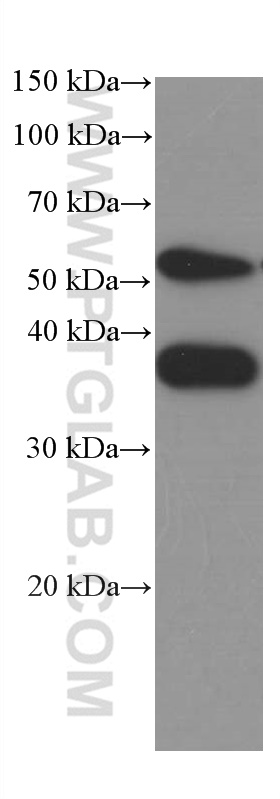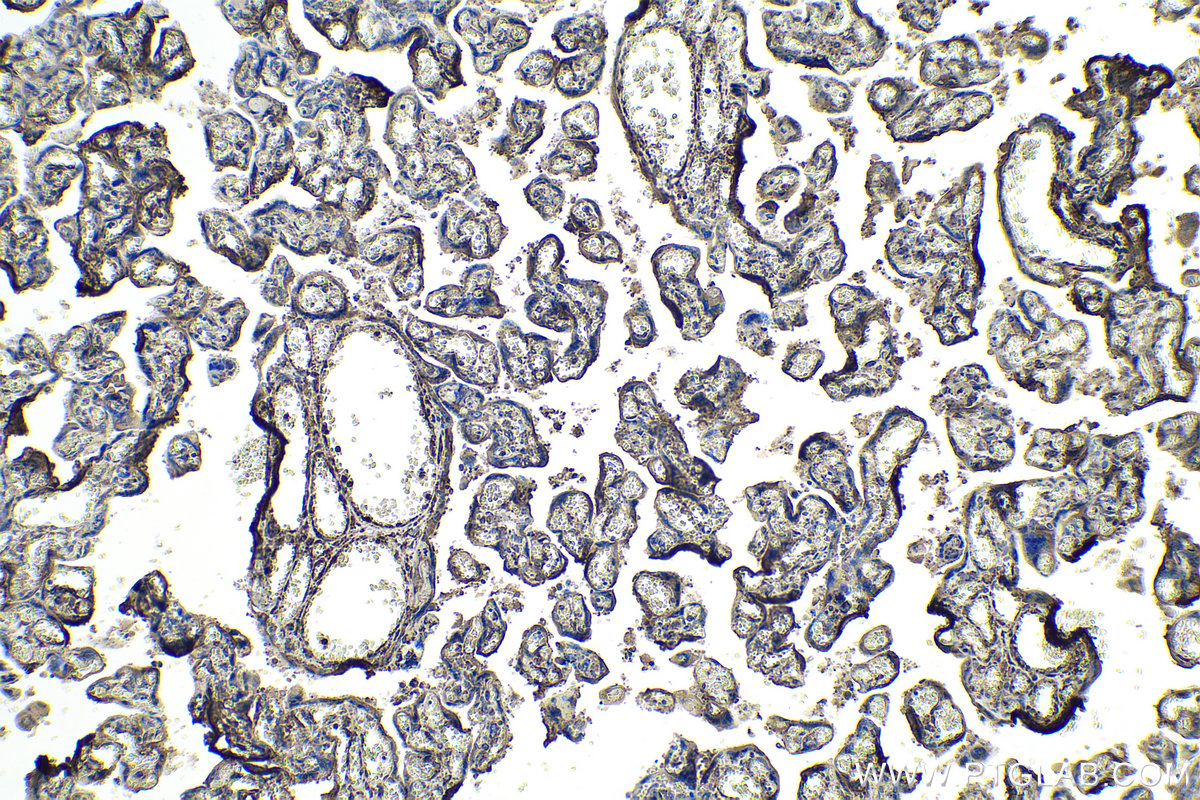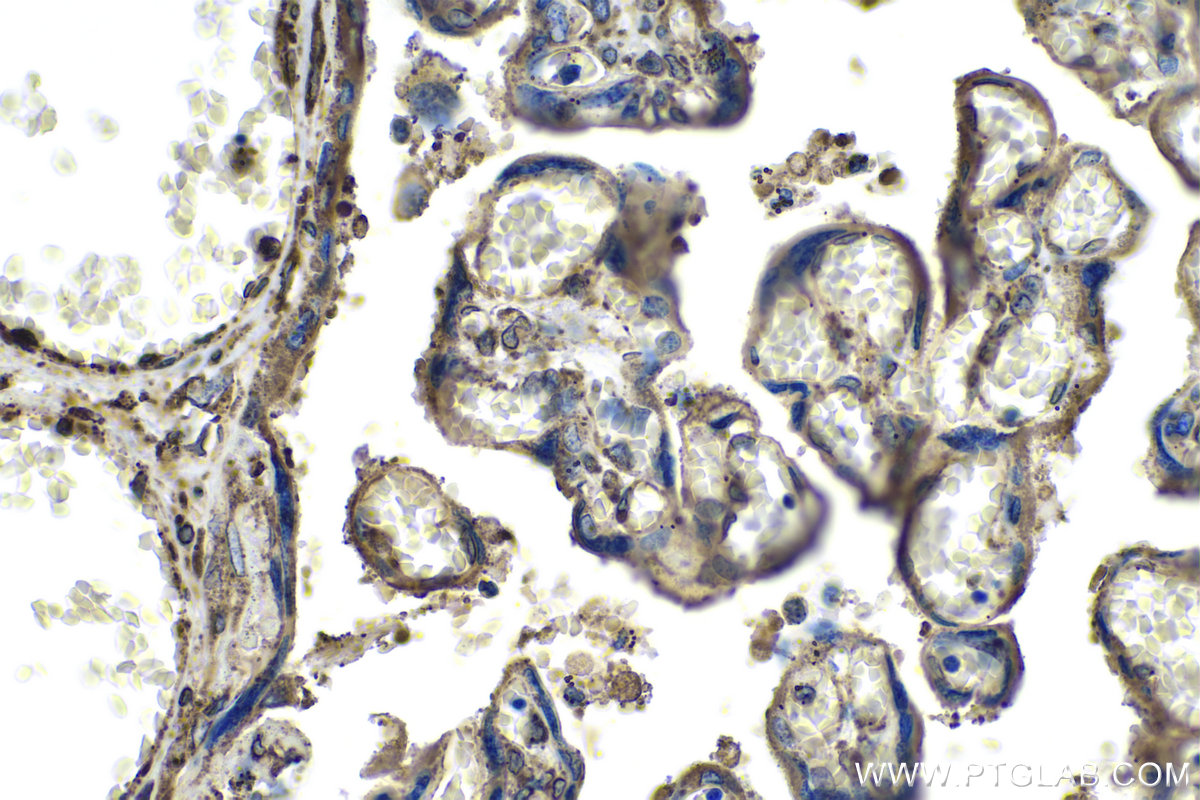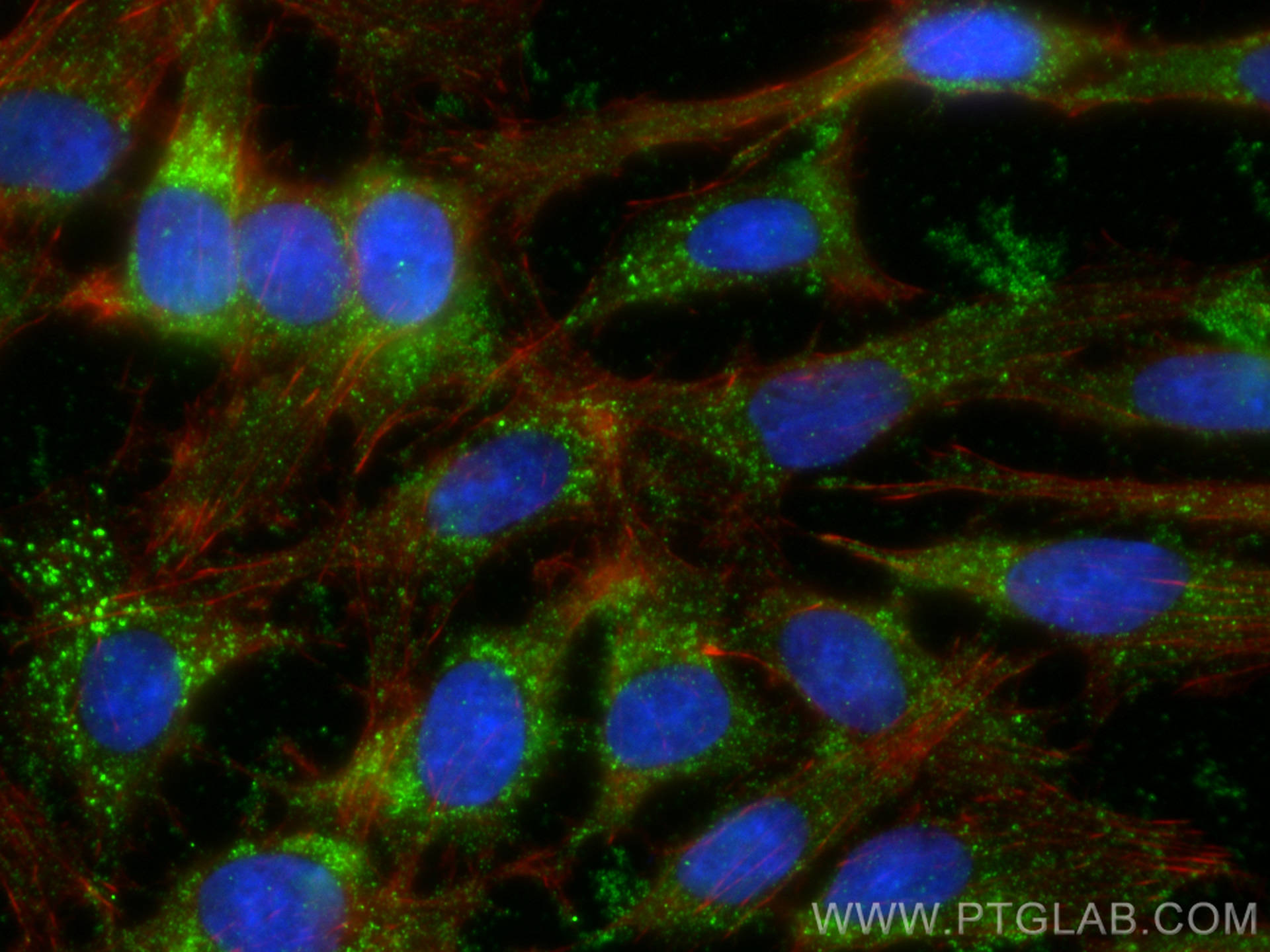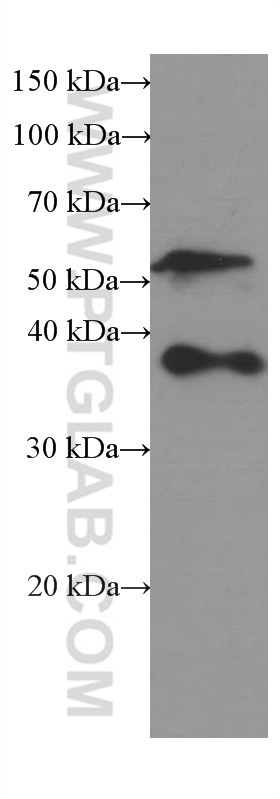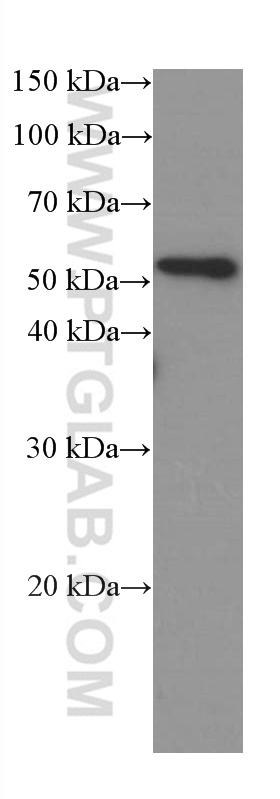验证数据展示
产品信息
66426-1-PBS targets SPARC in WB, IHC, IF/ICC, Indirect ELISA applications and shows reactivity with human samples.
| 经测试应用 | WB, IHC, IF/ICC, Indirect ELISA Application Description |
| 经测试反应性 | human |
| 免疫原 | SPARC fusion protein Ag7390 种属同源性预测 |
| 宿主/亚型 | Mouse / IgG2a |
| 抗体类别 | Monoclonal |
| 产品类型 | Antibody |
| 全称 | secreted protein, acidic, cysteine-rich (osteonectin) |
| 别名 | Basement membrane protein 40, BM 40, ON, Osteonectin, SPARC |
| 计算分子量 | 35 kDa |
| 观测分子量 | 38 kDa, 52 kDa |
| GenBank蛋白编号 | BC004974 |
| 基因名称 | SPARC |
| Gene ID (NCBI) | 6678 |
| RRID | AB_2881797 |
| 偶联类型 | Unconjugated |
| 形式 | Liquid |
| 纯化方式 | Protein A purification |
| UNIPROT ID | P09486 |
| 储存缓冲液 | PBS only , pH 7.3 |
| 储存条件 | Store at -80°C. The product is shipped with ice packs. Upon receipt, store it immediately at -80°C |
背景介绍
SPARC, also known as ON (Osteonectin) or BM-40 (Basement-membrane protein 40), is an extracellular glycoprotein with the calculated molecular mass of 35 kDa and the apparent molecular mass of 40-43 kDa and 50 kDa (PMID: 7495300, 12365801). SPARC belongs to a group of matricellular proteins defined as secreted components that do not contribute directly to the formation of structural elements but serve to modulate cell-matrix interactions and cellular functions (PMID: 7542656; 12231357). SPARC is expressed at high levels in bone tissue, is distributed widely in many other tissues and cell types, and is associated generally with tissues undergoing morphogenesis, remodeling and wound repair (PMID: 10567433). It elicits changes in cell shape, inhibits cell-cycle progression, and influences the synthesis of extracellular matrix (PMID: 12721366). Altered expression of SPARC has been reported in a variety of cancers, which include breast, ovarian, colorectal, and pancreatic cancer as well as melanoma and glioblastomas (PMID: 18849185).
